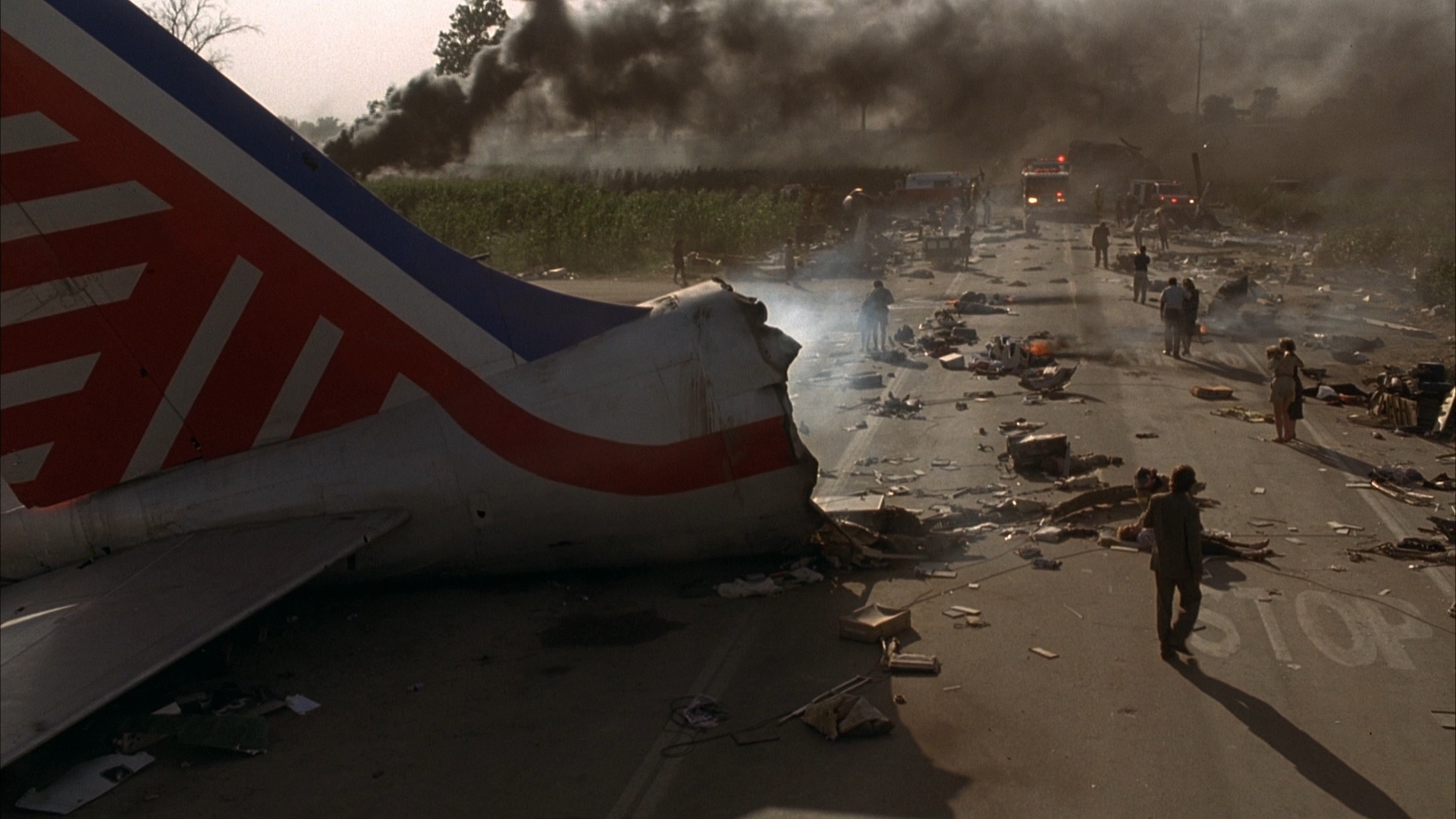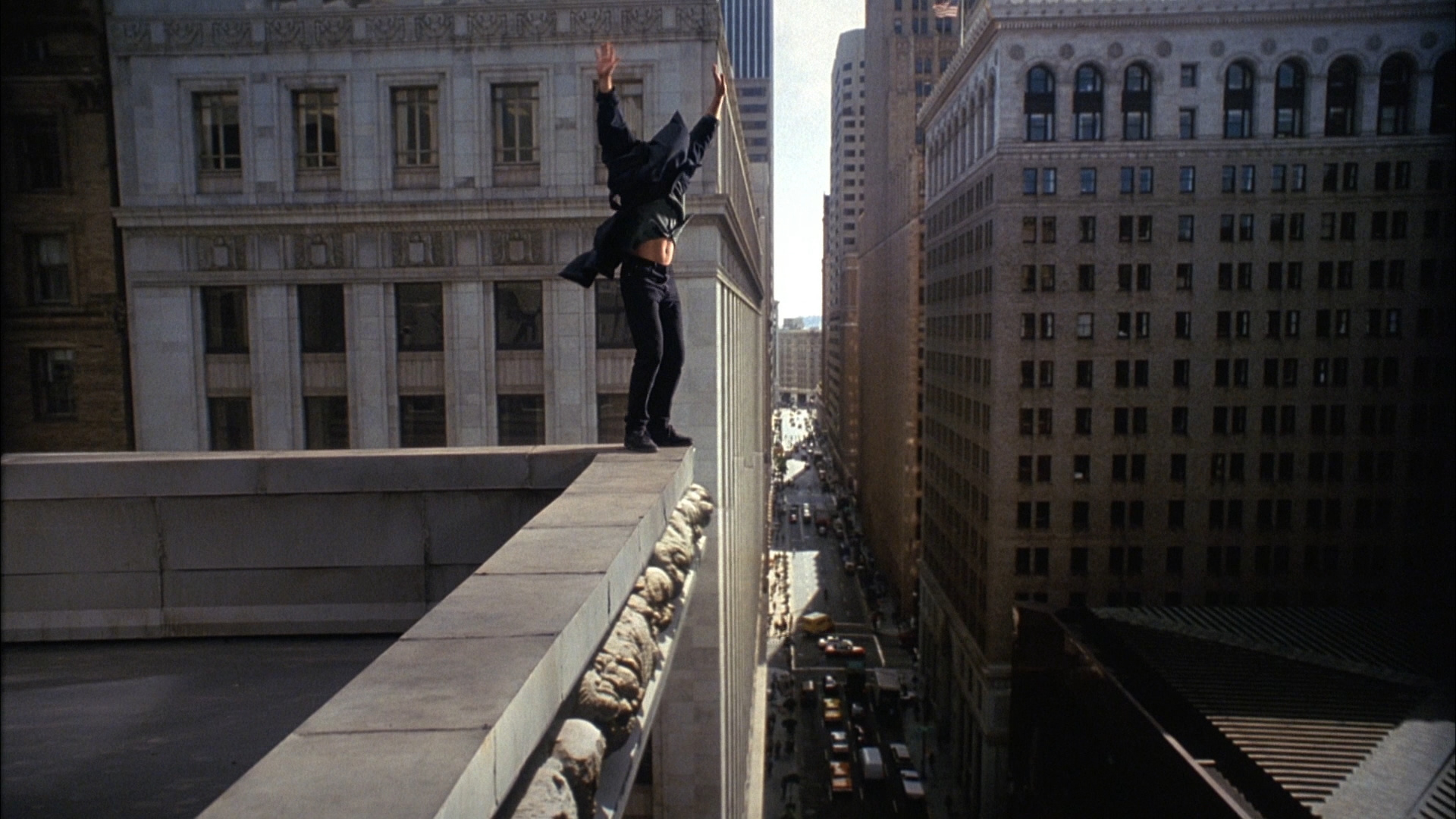

“People say they want to know the truth, but what they really want to know is that they already know the truth.”
Peter Weir’s Fearless begins with a calamity, a plane crash landing in a corn field. Out of the wreckage walks Max Klein (Jeff Bridges), preternaturally serene amidst the chaos, holding a helpless infant and guiding a dazed young boy who was traveling alone. He goes AWOL for a few days then returns home to his wife (Isabella Rossellini) and son, a changed man, reborn as it were, set free from his old inhibitions by this paradigm-shifting experience. Though he’s viewed in the media as a Christlike hero, his new outlook, which is marked at the same time by a sense of transparency and an inability to explain his ecstatic emotions, does not sit well with his loved ones; even less so when the airline-hired shrink (John Turturro) decides to connect him with fellow survivor Carla (Rosie Perez), whose own baby slipped from her arms and perished in the accident, and Max finds himself possessed by an overwhelming sense of love for the guilt-ridden mother. Something akin to a romance develops between the two as they regularly meet, sometimes talking about the plane crash but mostly just connecting with one another in a way that they cannot with their own spouses (Benicio del Toro plays Carla’s husband).
A chintzy, ambulance-chasing lawyer (Tom Hulce) adds an element of satire, but the main thrust of the film is a philosophical inquiry into the mental constitution of a man who’s glimpsed beyond the brink. There’s some deliberate ambiguity over what exactly Max is going through, but all of Weir’s tricks are aimed at exploring that confused state of mind—his uses of slow motion, prolonged silences, flashbacks, hallucinogenic dream states, classical music, unconventional framing, languid editing, extreme close-ups. It’s that knack for conjuring a sense of mysticism that gives the film its ruminative texture, and Bridges’ stunningly intricate performance matches it at every turn.

In the wake of the crash (which is magnificently staged, for the record), Max begins to see himself as a Nietzchean Übermensch, inhabiting a psychospiritual realm almost entirely distinct from his fellow man even while sharing the physical world with them. He thinks he’s some sort of invincible guardian angel and freely tempts fate, perhaps subconsciously prolonging his state of shock to put off processing his trauma. Whatever the case, his conception of the universe and his position in it has been fundamentally altered, aligning the film with other Weir pictures like Picnic at Hanging Rock and The Last Wave.
In many ways, Max is a model victim of what Francis Schaeffer calls an “upper story experience”—an inarticulable spiritual ordeal that can lead to distress and existential despair if one holds that transcendental notions like love, justice, or forgiveness have no ultimate meaning. Which is exactly what happens to Max, whose behavior becomes erratic and impulsive: he shuns his family, refuses to work with the lawyer to provide for his best friend’s widow, and eventually engages in a form of rogue therapy by forcing Carla to relive the accident, the two of them driving head-on into a brick wall in a speeding car while blasting some U2. He seems on the verge of profound insight, but he doesn’t know what it is, how to explain it, or how it should come to bear in his own life.

In Schaeffer’s The God Who Is There, he tells the story of musician and amateur mycologist John Cage, who believed everything came down to chance; except he could never work himself up to eat mushrooms known to be poisonous. His actions betrayed a belief in a natural order. Fearless ends with a crash back to reality that plays with this idea, using a harsh physical reality to return our leading man to a rational state of mind and spirit, changed by his brush with death but no longer swayed by a faux-enlightenment, once again a father and husband and friend, once again alive and perhaps now truly enlightened and aware of his cosmic orientation.
Sources:
Suton, Koraljka. “Peter Weir’s ‘Fearless’ as a Soulful Slice of Life That Gently Examines the Human Condition”. Cinephilia & Beyond.